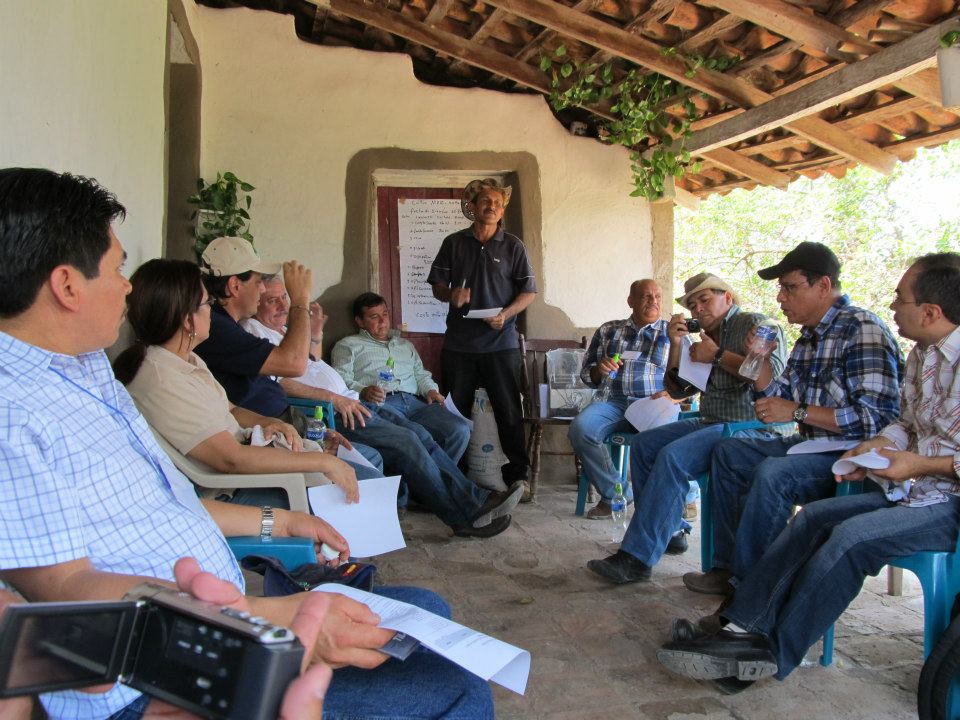GWP Central America and the Food and Agriculture Organization of the United Nations (FAO), have produced a document on the efficient and sustainable use of water for family farming, in the context of climate change.
The document will be a tool for technicians, researchers, and field staff seeking alternative technologies to be more efficient with the use of water for agriculture and includes success stories in the region on the collection, storage and distribution of water. It will also be a source of information for decision makers and donors.
To validate the document, a workshop was held in Tegucigalpa, Honduras, on April 24 and 25, with the participation of experts from the six countries in the region. They reviewed the draft document and left their contributions to be taken into account in a final version, which will be published in early June 2013.
The participants of the workshop also had an opportunity to visit a rural family in southern Honduras, which is part of the dry belt of the region. The family has installed a drip irrigation system and water catchment reservoirs and is using "improved seeds" to increase their agricultural production. They are also cultivating tilapia in the reservoirs to supplement their diet.

